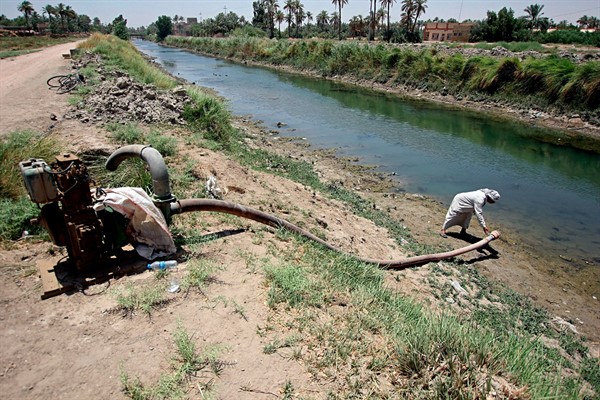The many ongoing challenges in Iraq—from political upheaval and COVID-19 to plummeting oil prices and the resurgence of the Islamic State—often overshadow the precarious state of the country’s water resources, even though water shortages are exacerbating many of those very issues. Studies have shown that equitable access to water is vital to supporting post-conflict recovery, sustainable development and lasting peace in Iraq, because water underpins public health, food production, agricultural livelihoods and power generation. But fresh water in Iraq is becoming scarcer, fueling more social tensions.
Iraq’s population of 40 million is expected to double by 2050, while the impacts of climate change—decreased and erratic precipitation, higher temperatures, prolonged and more severe droughts—will further aggravate its water woes. Iraqi and international experts are warning that instability will continue in Iraq so long as its long-neglected water crisis is not addressed.
When anti-government protests erupted last October, Iraqis’ demands for political and economic reforms and an end to corruption and foreign influence were accompanied by calls for better basic services, like water and electricity. During the protests, Humat Dijlah, a local NGO working to protect Iraq’s natural heritage, set up a tent in Baghdad’s Tahrir Square to link the right to fresh water with the broader struggle for human rights. Salman Khairalla, the organization’s executive director, says he and his colleagues wanted to encourage people to reflect on what Iraq’s future could look like with good water management, less pollution and more green space.

